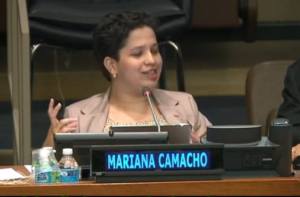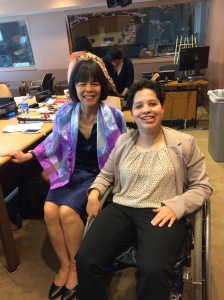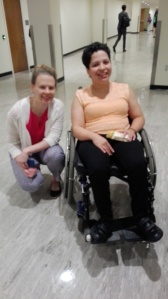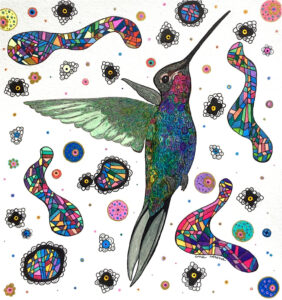By Mariana Camacho
Mariana Camacho, member of META Costa Rica, represented young people with disabilities at the CRPD States Parties conference, in New York. Here we share a selection of her experiences and reflections.

At the United Nations Headquarters in New York, the tenth Conference of States Parties on the Convention on the Rights of Persons with Disabilities was held from June 13 to 15, 2017. It brought together government delegations, members of civil society , intergovernmental agencies and organizations of persons with disabilities to discuss and analyze the challenges that have appeared within the first decade since the adoption of the Convention on the Rights of Persons with Disabilities (CRPD) in 2006. The event also provided a space for the exchange of best practices on regional and global levels.
Organizations of persons with disabilities played a key role in the discussions, especially when the primary needs of people with disabilities were identified in the new Development Agenda of 2030, approved by the General Assembly two years ago. With this in mind, conference participants asked themselves, “What does it mean to include people with disabilities in sustainable development initiatives?” and “What is required so that current gaps and challenges are not missed?”
During the Conference, countries offered summaries of their respective progress and good practices utilized to implement the Convention. In addition, there were discussions on particular topics such as: multiple discrimination and its impact on the participation of persons with disabilities and their representatives; the establishment of strategic alliances for the synchronous advancement of the Convention along with the Sustainable Development Objectives; Inclusion and participation in humanitarian aid; and the implementation of a new urban agenda.
Civil Society Forum
As a disabled woman and activist, I arrived in New York one day before the Conference because a preceding Civil Society Forum was going to be held for the first time, focused on the issue of disability. I was a participant but also had the opportunity to act as a panelist representing young people with disabilities. During the second panel «Leaving no-one behind: Addressing multiple and intersecting forms of discrimination» I referenced the commitment to inclusion on the part of young people with disabilities.
Youth Commitment

Youth commitment is a challenge because when young people do not have full access to information, adequate education or participation mechanisms, there is often a lack of interest in being part of social movements. However, responsibility must be shared by the general population when it believes that the recognition of the rights of persons with disabilities corresponds only to this group. As a member of Youth Movement Estamos Tod@s en Acción (M.E.T.A.), I have been witness to young people with and without disabilities working together for true social inclusion. Many young people want to troubleshoot the advances and challenges that persist in our society from a youth perspective which accurately represents our realities in a highly technological era.
This task does not consist in memorizing each individual article of the Convention, but in understanding them according to our own approaches while not forgetting the struggles of the representatives who came before us. In this respect, promoting a dialogue between generations, between social movements and groups with disabilities would be a wonderful vehicle for change. Technology is an effective tool in the promotion of our rights, as well as a grounds for creative expression. By using technology we are able to increase the participation of young people seeking recognition of their talents and abilities.

Many representatives of human rights and inclusive development initiatives were in attendance at the Civil Society Forum and were already familiar with the work that M.E.T.A carries out in the Latin American region. These development specialists included: Catalina Devandas, United Nations Special Rapporteur on the Rights of Persons with Disabilities; Rosangela Berman, UNICEF Senior Adviser on Children with Disabilities; Kimberly O’Haver of the Open Society Institute, and Vladimir Cuk, Executive Director of the International Disability Alliance.
One of the main points on the agenda was the urgent need to generate records and statistics disaggregated by gender and disability in order to identify specific needs for inclusion and areas lacking statistical representation. By collecting this information we will achieve greater a more accurate review of the fulfillment of the goals established by the Sustainable Development Objectives and we will ensure our role as active participants in the full course of the development initiatives.
As a young person you also have a voice! Become involved in Political Forums nationally and globally! By sharing your life experiences you will teach others about different realities.



